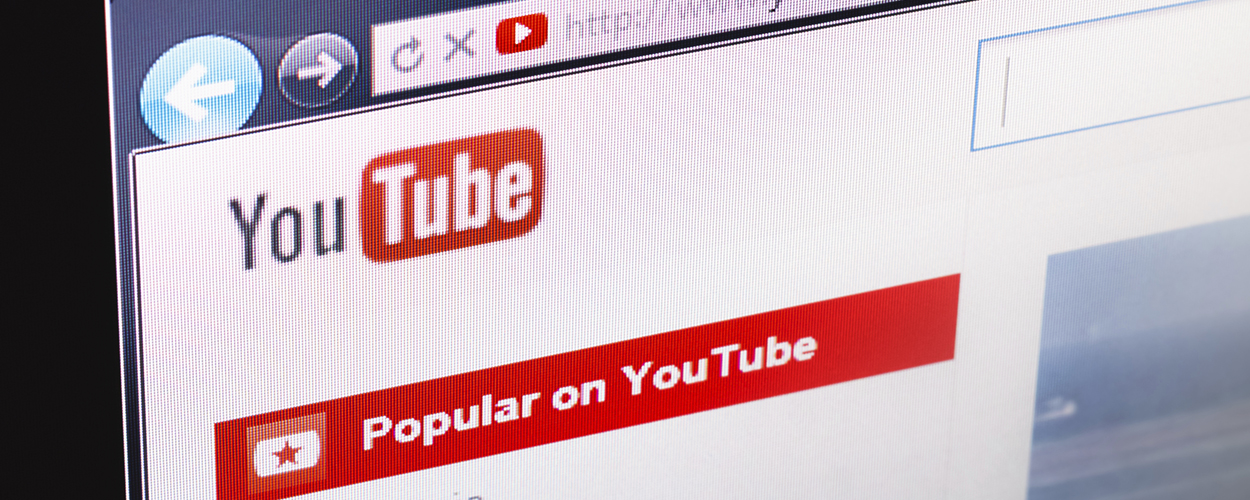This website uses cookies so that we can provide you with the best user experience possible. Cookie information is stored in your browser and performs functions such as recognising you when you return to our website and helping our team to understand which sections of the website you find most interesting and useful.
Business News Deals Digital Labels & Publishers Top Stories
GEMA licenses YouTube after seven year stand off
By Chris Cooke | Published on Tuesday 1 November 2016

Larry looked over his dominion and smiled. His grand plan to transform this land into the ultimate winter sports resort had finally come to fruition, thanks to a very surprising climatic shift that few had ever even dreamed to believe could actually occur.
But Larry was nothing if not a dreamer. And now, look at it, the lake of fire burned no more, in its place the greatest, largest, most impressive ice rink that anyone had ever seen. At last, that risky acquisition of Styx Ferries was going to pay off; and to think they had laughed when he hired the maverick Mr Charon to head up his transport business on such an expensive retainer. “But they’d laugh no more”, Larry mused to himself, smiling as a cold breeze chilled even his body. Mr Lucifer Page was finally in business.
So yes, GEMA has licensed YouTube. That’s right, fucking GEMA has only gone and fucking licensed fucking YouTube. It’s a cold day in hell that’s for sure. Who’d have thought it possible? Though, given that GEMA led the “YouTube is evil” campaign back when the rest of the music industry was in the midst of an early days love-in with the Google video site, it’s perhaps apt that the contrary German collecting society chooses to play ball now that everyone else in the music rights business has bought into the Larry ‘Lucifer’ Page meme I just made up.
“Today is a big day for music in Germany”, declared the Google company on a blog post this morning. “YouTube has reached a landmark agreement with the Germany-based music rights organisation GEMA, meaning that starting today, more music will be available on YouTube in Germany. This is a win for music artists around the world, enabling them to reach new and existing fans in Germany, while also earning money from the advertising on their videos. And for YouTube users in Germany, who will no longer see a blocking message on music content that contains GEMA repertoire, for the first time in seven years”.
German song rights society GEMA has played hardball ever since the early days of digital, and especially streaming music. Some see the collective management organisation as being a true defender of songwriter rights, refusing to sign up to questionable business models offering only nominal royalties, while others see GEMA as being far too conservative and unwilling to experiment, and responsible for the German digital market being years behind that in Scandinavia, the UK and the US.
GEMA’s stand off with YouTube was particularly legendary, beginning in 2009 just as the Google site was becoming a real hub for music content, and meaning a flood of music videos, and videos containing music, were blocked in the country. At the heart of the dispute was royalty rates, though the German society also went legal over YouTube’s responsibilities – or not – to police videos uploaded by its users containing songs repped by GEMA, a legal battle that tested just how the often controversial safe harbours worked in Europe.
In the aforementioned blog post, YouTube’s Head of International Music Partnerships Christophe Muller writes: “This agreement reflects a long-held commitment that composers, songwriters, and publishers should be paid fairly, while ensuring fans can enjoy their favourite songs and discover new music on YouTube. That commitment has helped YouTube evolve into an important source of promotion and revenue for musicians. As such, we continue to invest in our rights management system, Content ID, to protect rights owners while continuing to innovate and create new and exciting YouTube features such as VR and 360°, that can heighten the music experience on YouTube even more”.
The GEMA deal comes amid efforts by the record companies and music publishers to have European safe harbour rules reformed so to increase the obligations of sites like YouTube. Music rights owners hope that this change will strengthen their negotiating hand, therefore forcing the Google service into deals more in line with those negotiated with streaming platforms like Spotify and Apple Music. These services generally pay higher rates and, crucially, commit to minimum guarantees in addition to revenue share arrangements.
Specifics of GEMA’s YouTube deal are not yet known. Though the arrangement comes as the German society starts to collaborate with its UK and Swedish counterparts, PRS and STIM, offering combined licences through their ICE joint venture. ICE did its first big deal with Google’s other music set up, Google Play, earlier this year, and has just inked an agreement with another one-time controversial safe harbour dweller, SoundCloud. GEMA’s stand off with YouTube seemed to suggest ICE wouldn’t be able to get involved in any licensing deal with the video site, but today’s deal means perhaps that will eventually happen.
After all, even if you’re one of the songwriters or music publishers who believes that YouTube sits at the very bottom of the pit of hell, I hear there’s plenty of ice down there now to get things started. Well done Larry.





